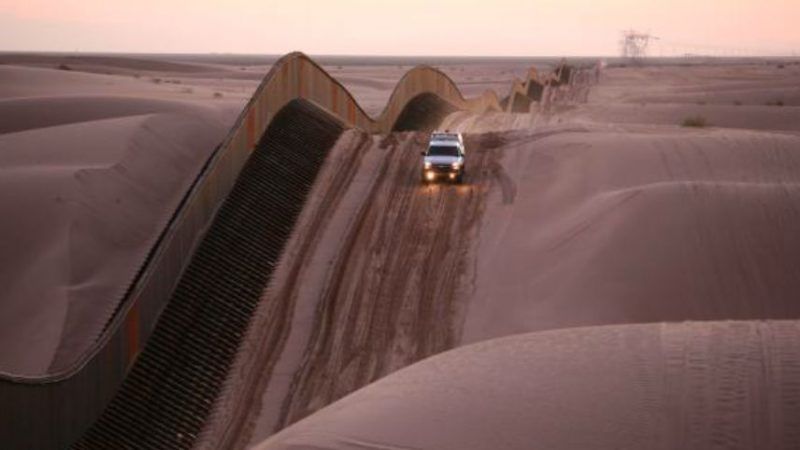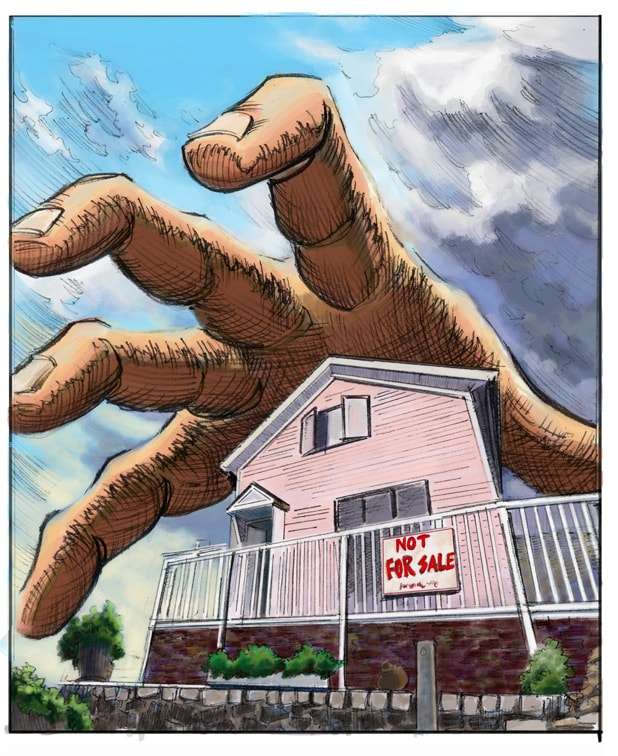How Using Eminent Domain to Seize Land for a Border Wall Harms American Property Owners
A new study of border takings under the 2006 Secure Fence Act finds that many owners get inadequate compensation, and that the condemnation process is flawed in other ways.


Building Trump's much-ballyhooed border wall will requiring using eminent domain to forcibly take the land of numerous property owners. If that happens, many of the property owners probably will not get anything like adequate compensation. A just-published study conducted by ProPublica and the Texas Tribune analyzed over 400 condemnations undertaken as a result of the Secure Fence Act of 2006, which authorized the construction of a much smaller barrier than Trump's proposed wall. Here is their summary of their findings:
An investigation by ProPublica and the Texas Tribune shows that [the Department of] Homeland Security cut unfair real estate deals, secretly waived legal safeguards for property owners, and ultimately abused the government's extraordinary power to take land from private citizens.
The major findings:
-
Homeland Security circumvented laws designed to help landowners receive fair compensation. The agency did not conduct formal appraisals of targeted parcels. Instead, it issued low-ball offers based on substandard estimates of property values.
-
Larger, wealthier property owners who could afford lawyers negotiated deals that, on average, tripled the opening bids from Homeland Security. Smaller and poorer landholders took whatever the government offered — or wrung out small increases in settlements. The government conceded publicly that landowners without lawyers might wind up shortchanged, but did little to protect their interests.
-
The Justice Department bungled hundreds of condemnation cases. The agency took property without knowing the identity of the actual owners. It condemned land without researching facts as basic as property lines. Landholders spent tens of thousands of dollars to defend themselves from the government's mistakes.
-
The government had to redo settlements with landowners after it realized it had failed to account for the valuable water rights associated with the properties, an oversight that added months to the compensation process.
-
On occasion, Homeland Security paid people for property they did not actually own. The agency did not attempt to recover the misdirected taxpayer funds, instead paying for land a second time once it determined the correct owners.
-
Nearly a decade later, scores of landowners remain tangled in lawsuits. The government has already taken their land and built the border fence. But it has not resolved claims for its value.
The study's findings are consistent with previous research on takings compensation, which I summarized in Chapter 8 of my book on eminent domain, The Grasping Hand. Scholars have repeatedly found that many property owners get less than the "fair market value" compensation required by Supreme Court precedent, and that this is particularly likely for those who are poor, legally unsophisticated, and lacking in political influence. Even those who do get fair market value compensation still often are not fully compensated for all their losses, because many owners attach "subjective value" to their land above and beyond its market price. Consider, for example, a homeowner who has lived in the same neighborhood for a long time, or a small business with established customer "good will" in the area that may be hard to replicate elsewhere.
During the 2016 presidential campaign, Donald Trump claimed that victims of eminent domain have nothing to complain about because "when eminent domain is used on somebody's property, that person gets a fortune." The history of the Secure Fence Act takings - and many other condemnations - proves otherwise. If it were really true that having your property condemned is a great way to make a fortune, the Donald Trumps of the world would be lobbying the government to take their property, instead of lobbying to condemn that of the politically weak in order to build parking lots for their casinos.
If Congress allocates money to build Trump's border wall, the abuses that occurred with the Secure Fence Act takings are likely to be repeated on a much larger scale. Sadly, this would be yet another of the many ways in which immigration restrictions harm American citizens, as well as immigrants.
